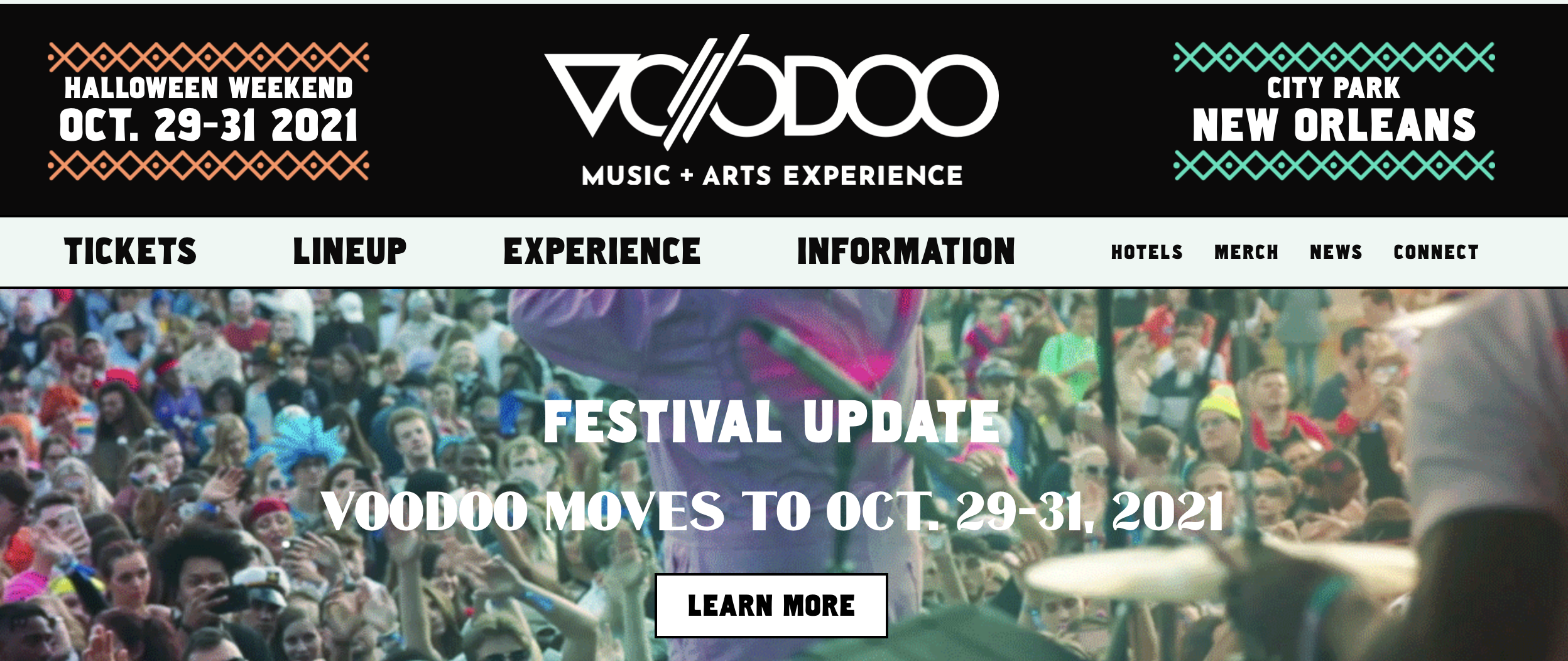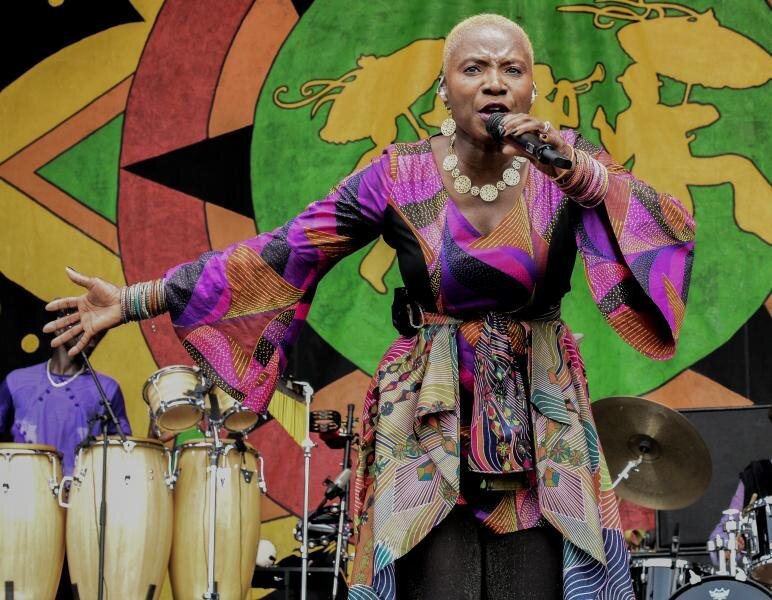What Does the Cancellation of SXSW Foreshadow for French Quarter Fest, Jazz Fest?

Short answer: bad outcomes are possible but by no means inevitable.
[Updated] On Thursday, we posted a story on the possible impact of Coronavirus Disease 2019 (COVID-19) on Jazz Fest in New Orleans. Within a day, the story had moved enough that updates wouldn’t suffice. Three more music festivals canceled or postponed—Miami’s Calle Ocho, Tomorrowland Winter in the French Alps, and most significantly, South by Southwest (SXSW) in Austin. That sent shock waves through music industry social media and had many in New Orleans wringing their hands that French Quarter Fest and Jazz Fest are next.
The shuttering of SXSW this year is certainly a cause for concern because it occupies a similar space in Austin’s economy to the one held by Jazz Fest, one so large that canceling the festival seemed unimaginable. SXSW claimed to have a $356 million economic impact on the region, only slightly higher than the $300 million that Jazz Fest claims. It’s not clear how this cancelation will affect festival organizers since the specifics of their insurance policy and as yet unannounced plans regarding refunds will affect the bottom line [See March 9 update at the end of the story]. What can’t be denied is that this will hurt all the bars, restaurants, businesses, and production-related workers that make money as a result of the festival. Mike Rollins, chief executive of the Austin Chamber of Commerce, spoke about the decision in language usually reserved for catastrophes, which for local businesses, it is. “Our thoughts are with the many small businesses in Austin that depend on major events like SXSW to keep their doors open,” he wrote in a statement.
Many have worried since the announcement that the decision was an overreaction. Just days earlier, Austin public health officials believed that canceling SXSW wouldn’t make Austin any healthier, but since then, Austin Public Health interim director Dr. Mark Escott announced that the organization had updated its position. The travelers from around the world that come to Austin for SXSW would pose an unmanageable threat to any efforts to limit the spread of coronavirus. The cancellation reduces the probability that a traveler will bring COVID-19 to Austin, the probability of transmission during SXSW, and the likelihood that visitors to SXSW will take it home with them and accelerate the worldwide spread of the virus.
The impact of travelers coming to New Orleans for French Quarter Festival and Jazz Fest is New Orleans’ problem as well. Both events draw international audiences, which is normally a source of pride but a potential problem this year. And like Austin, canceled festivals would be economically traumatic for New Orleans. Many local businesses have said that the money they made during Jazz Fest helps get them through the tourist-lean summer months, and local musicians would be devastated. In addition to paychecks for playing the Fairgrounds, many maintain exhausting schedules during the almost two weeks at the end of April and the beginning of May. Without Jazz Fest and the audiences it brings, the frantic demand for all those gigs decreases and with it, the amount of money pocketed by musicians. (For more on that, see our two-part series from 2016 on the value of playing at the Fairgrounds and in the clubs during Jazz Fest.)
Still, the SXSW situation doesn’t automatically sound the death knell for the French Quarter Fest and Jazz Fest in 2020. SXSW takes place at least a month before them and nearer to the start of the outbreak in the United States. So far, 28 states have reported coronavirus infections, but If SXSW had continued, the festival would have almost certainly have helped the coronavirus spread in America. By late April when Jazz Fest starts, we should have a clearer picture of the coronavirus story.
One question that remains unanswered is whether or not coronavirus is affected by the changing seasons in the way that many viruses are. The flu season is considered by the Center for Disease Control to last from October through February because rising temperatures and humidity levels are not conducive for the spread of many viruses. According to Nathan Grubaugh, an epidemiologist at the Yale School of Public Health, “A lot of how the outbreak ends or at least how things progress in the next few months really depends on if this is seasonal.”
SXSW also takes place primarily in clubs and indoor venues, whereas Jazz Fest is an outdoor event, at least at the Fairgrounds, and that could make a difference. In Singapore, the Ministry of Health recommended that buildings turn off their air conditioning and open windows because viruses tend to thrive in cool, dry conditions. “The likelihood of viral persistence outdoors is lower,” Professor Tan Chorh Chuan, chief health officer for the Ministry of Health told a press conference.
Even if heat and humidity slow or stop the spread of coronavirus, we won’t be out of the woods where the disease is concerned. “It likely isn’t just going to magically go away,” Grubaugh says. When it's summer in the Northern Hemisphere, it's winter in the Southern Hemisphere, where COVID-19 could flourish. “Next winter might end up being the big winter,” Grumbaugh says.
Another issue French Quarter Festival and Jazz Fest face is talent opting not to tour in this health climate or choosing not to play Jazz Fest. On Friday, Mike Campbell and the Dirty Knobs changed their spring tour plans, citing health issues. According to a statement from Campbell:
On Sunday night my doctors discovered some health issues which while fully treatable, need to be addressed before going out on tour.
The good news, well really it’s great news, is that I’m going to be just fine.
The bad news, and I say this with much frustration, is the tour which was scheduled to start next week will need to be postponed and rescheduled for September. Subsequently, we’ll also need to postpone the album release until September 18.
We can’t be at New Orleans’ Jazzfest this April but the already announced shows from June onwards with Chris Stapleton and Zac Brown Band will go on as planned.
Campbell postponed dates scheduled in April and May and will begin his tour on June 4. He’ll play New Orleans November 7 at One Eyed Jacks. Since we don’t know the nature of Campbell’s illness, we can’t know if concerns about coronavirus affected his decision, but he did postpone the dates at the end of flu season and choose to start in a squarely summer month.
If he made the decision with concerns about coronavirus in mind—and, I emphasize, this is speculation—it’s a reasonable decision. So far, people with compromised immune systems and adults over the age of 65 are more vulnerable to influenza-like viruses, and Campbell is 70.
Jazz Fest has relied heavily on mature artists over the years, and even though this year’s lineup includes some fresher faces such as Lizzo, Maggie Rogers, The Lumineers, and H.E.R., it also features a number of artists who fall in the demographic with the highest mortality rate for the coronavirus starting with The Who (Pete Townshend is 74, Roger Daltrey is 76). Mike Love of The Beach Boys, Bettye Lavette, Charlie Musslewhite, David Sanborn, Irma Thomas, George Porter Jr., Buddy Guy, Jimmy Cliff, Ellis Marsalis, Aaron Neville, Dead & Company’s Bob Weir, Ronald Isley, Stevie Nicks, John Prine, Chick Corea, and Zigaboo Modeliste are all over 70. If the coronavirus spreads as experts fear it will, it’s very possible that Campbell won’t be the only artist to pull out.
Much of the festival’s core audience has grown up with it and is similarly in the demographic that has the most to fear from coronavirus. The World Health Organization studied deaths due to COVID-19 in China and found that they skew heavily toward older people. Right now, the overall mortality rate is pegged at 3.4 percent, but in the study of infections in China, the mortality rate was similar to that of the flu from infancy to 39 years old (0.2 percent). It jumps to 3.6 percent for those 60-69, 8 percent for those 70-79, and 14.8 percent for those 80 and older. Will those numbers scare away the Jazz Fest faithful? A good question. Rock ’n’ roll has always run hand in hand with a What me, worry? attitude, and those who have already bought tickets have a financial and emotional investment that may prompt them to be bold, but that may change when/if coronavirus becomes a present reality across the country. If they begin to signal that they won't attend Jazz Fest under these conditions, that might prompt Festival Productions to reconsider this year's festival. More likely though, any change will come from the city, just as SXSW and Ultra's cancellations came at the request of Austin and Miami's mayors.
At this point, the wait and see approach that Jazz Fest and French Quarter Fest are taking likely remains the only realistic one. Austin’s decision to cancel SXSW is absolutely a wake-up call for those who can't imagine New Orleans canceling its late spring festivals, but it doesn’t mean cancellation is inevitable.
Updated on March 8 at 9:12 a.m.
The number of states reporting at least one case of coronavirus infection has grown to 28, up from the 18 initially reported.
Updated March 9 at 8:59 a.m.
SXSW organizers announced that their insurance didn't cover a disease outbreak.






